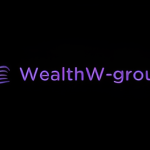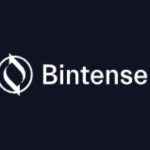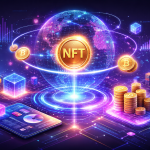Blockchain
Blockchain-Backed Property Tokenization: A Game-Changer For Real Estate Investment

Introduction
In an era where real estate prices are soaring beyond the reach of many investors, blockchain technology is emerging as a potential savior. Property tokenization—a blockchain-driven innovation—is gaining popularity as an alternative investment strategy that promises to democratize real estate ownership. This cutting-edge solution allows investors to buy fractions of a property, enabling them to diversify their portfolios without the significant financial commitment traditionally required for real estate investments.
Blockchain technology’s integration into the real estate market isn’t just a passing trend; it’s a revolution poised to disrupt the industry. From reducing transaction costs to eliminating intermediaries and increasing transparency, blockchain-backed property tokenization is changing the way we view property ownership. This article explores the intricacies of property tokenization, its advantages, potential challenges, and why it could be the key to unlocking real estate opportunities for the masses.
What Is Blockchain-Based Property Tokenization?
At its core, property tokenization refers to the process of converting real estate ownership into digital tokens stored on a blockchain. Each token represents a fraction of the property, and investors can purchase these tokens to own a percentage of the asset. Essentially, it’s a way to fractionalize property ownership, making it accessible to more investors.
Blockchain technology ensures that the tokenization process is secure and transparent. By recording every transaction on an immutable ledger, blockchain provides a level of trust and verification that traditional real estate markets often lack. This process eliminates the need for intermediaries, such as brokers or banks, reducing transaction costs and speeding up the process.
For instance, a $10 million property can be divided into 10,000 tokens, with each token representing a $1,000 share of ownership. Investors can buy as many tokens as they want, allowing them to participate in the property market without needing to commit to a full purchase.
Advantages Of Property Tokenization
Lower Barriers to Entry
One of the biggest advantages of blockchain-backed property tokenization is the low barrier to entry. Traditionally, real estate investing required substantial capital, making it inaccessible to many would-be investors. With tokenization, even small investors can enter the market by purchasing fractional ownership.
This democratization of real estate opens up opportunities for a broader audience, allowing individuals to diversify their investment portfolios without needing to buy entire properties. It also provides access to premium real estate markets that were once reserved for institutional investors or high-net-worth individuals.
Liquidity
Real estate is typically considered an illiquid asset. Selling property takes time, and there’s no guarantee of finding a buyer quickly. However, with tokenized properties, investors can trade their tokens on secondary markets, providing much-needed liquidity. This liquidity transforms real estate into a more dynamic investment, akin to trading stocks or bonds, where investors can easily buy or sell their holdings.
Reduced Costs and Increased Efficiency
Blockchain technology automates many processes associated with real estate transactions, including verifying ownership, handling payments, and executing contracts. These automation processes reduce the need for intermediaries, cutting down on legal fees, broker commissions, and other transaction-related costs.
Additionally, blockchain ensures that transactions are faster and more efficient. Smart contracts—self-executing contracts with the terms of the agreement written into code—can automatically enforce the conditions of a real estate deal, eliminating the need for lengthy paperwork or manual oversight.
Transparency and Security
Blockchain’s decentralized nature ensures that all transactions are recorded on a transparent and immutable ledger. This transparency prevents fraud and reduces the likelihood of disputes over property ownership. Furthermore, blockchain’s encryption and decentralized structure make it a highly secure system for storing and transferring assets.
Each token on the blockchain can represent not only ownership but also voting rights, income distribution, and other attributes of real estate, providing a clear and secure record of all aspects of property ownership.
Challenges Of Property Tokenization
While the benefits of property tokenization are numerous, there are still challenges that need to be addressed before it becomes a mainstream investment vehicle.
Regulatory Uncertainty
One of the most significant barriers to the widespread adoption of property tokenization is regulatory uncertainty. Real estate markets are heavily regulated, and the integration of blockchain technology into these markets raises questions about how tokens will be classified and regulated. Different countries have varying legal frameworks regarding property ownership, securities, and blockchain, making it difficult to create a one-size-fits-all solution.
Governments and regulatory bodies will need to establish clear guidelines to ensure that tokenized properties comply with local real estate and securities laws.
Market Volatility
The value of tokens tied to real estate properties can be subject to market volatility, just like other digital assets. If the real estate market experiences a downturn, token holders could see the value of their investments decrease. While diversification across multiple properties can mitigate this risk, it’s still a concern for investors accustomed to more stable, traditional investments.
Adoption and Infrastructure
Property tokenization is still a relatively new concept, and many traditional real estate investors and institutions may be hesitant to adopt this technology. Building the necessary infrastructure, including secure platforms for trading tokens and ensuring liquidity, is essential for tokenization to succeed on a large scale.
The Future Of Blockchain-Backed Real Estate Investments
As blockchain technology continues to evolve, its impact on the real estate market is likely to grow. Tokenized real estate offers a more accessible, liquid, and efficient way to invest in property, making it an attractive alternative for both individual and institutional investors. However, for this innovation to reach its full potential, regulators, investors, and industry stakeholders must work together to overcome the challenges that lie ahead.
In the future, we may see entire cities or real estate markets tokenized, allowing investors to own a piece of global real estate markets with the click of a button. For now, blockchain-backed property tokenization remains one of the most exciting developments in the world of real estate, offering a glimpse into the future of property ownership and investment.
Conclusion
Blockchain-backed property tokenization represents a revolutionary step in real estate investment, offering unprecedented accessibility, liquidity, and efficiency. By enabling fractional ownership, it lowers barriers to entry for investors, allowing participation in high-value markets. While regulatory challenges and market volatility remain hurdles, the potential for this technology to democratize real estate and transform traditional investment models is immense. As blockchain technology continues to evolve and gain regulatory clarity, tokenization is poised to become a mainstream solution, reshaping the future of property ownership and investment on a global scale.











